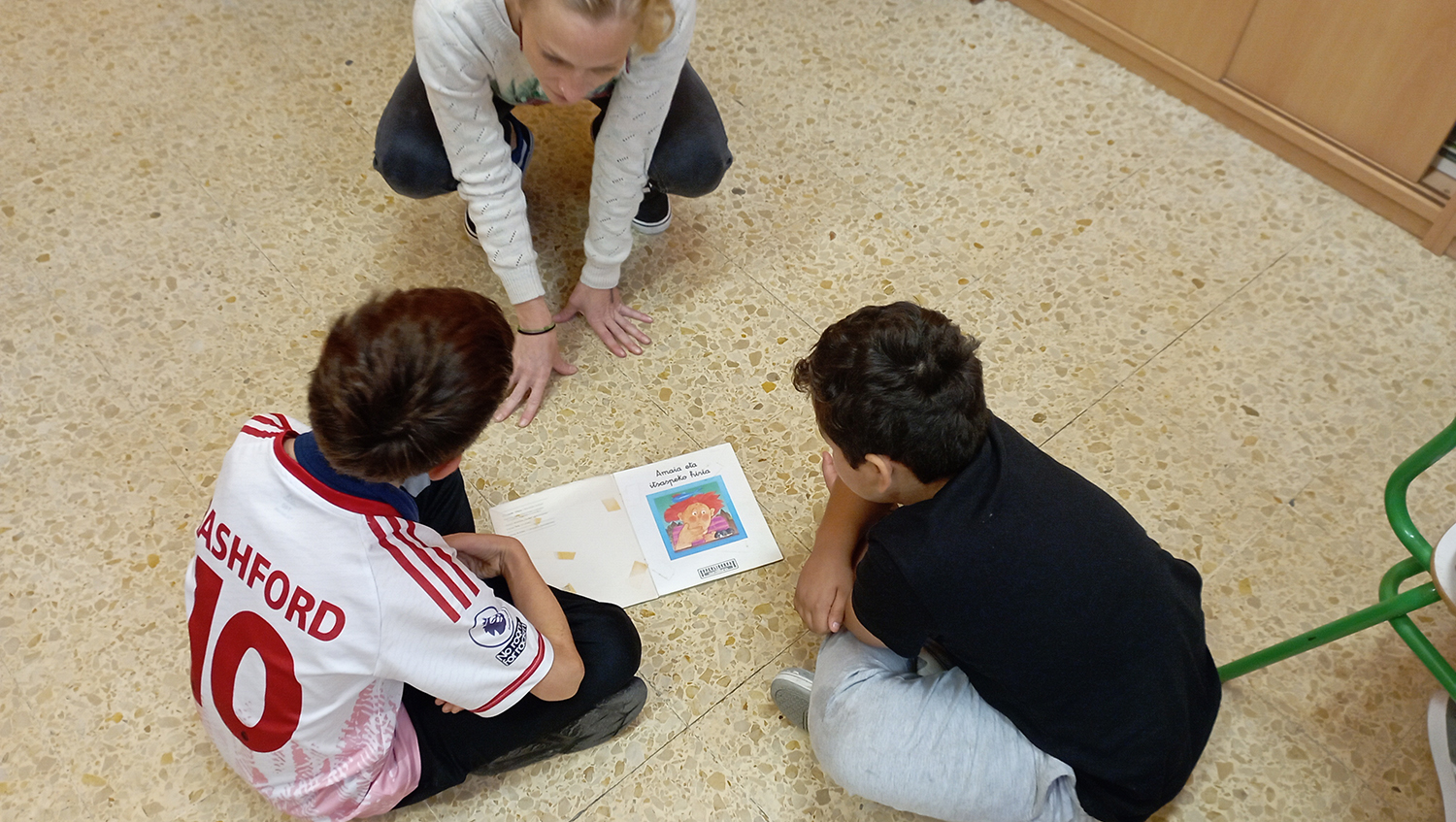Report that overexposure to screens is normalizing at school
- Instead of teaching how to navigate the digital environment, the CoLINE collective has denounced that classes are being filled with screen and digital technologies directly and that we are making a dangerous path without reflection. They believe that the delivery of the tablet or laptop to every child and young person does not guarantee better learning, but they are developing many skills and other negative consequences, and they will send an open letter to the French Minister of Education.

The digital media has become the primary tool of the school and is used for everything, with the risks that this entails. The collective CoLINE, formed by agents of the educational community, has denounced this in its publication Le Comptoir.
“All right, many children spend hours in front of screens outside school, but the center should be the place that offers other proposals, the place where to disconnect and develop awareness of the risks of digital overexposure, if not appropriate in learning hours for digital education.” Because CoLINE is not against digital education, it worries that the digital element has become the foundation of the school. In some centers, it is said that paper is gradually disappearing and that they use digital textbooks, and that when they are on a laptop, students spend time on many things other than school. That is, we spend a lot of time outside school in front of screens, and they say that going to screens also in the middle does nothing but encourage digital addiction: the educational system encourages students to make life in front of screens and to consume more and more, the association has denounced.
76% of parents think that the sooner they get involved in digital technology, the better it will develop, but to adapt to the digital environment the direct delivery of computer and tablet to children and young people is not a good way, according to CoLINE: “According to many experts, the first basic knowledge to feel comfortable with digital technology is that of reading, mathematics… Early digital exposure only means increasing the attractiveness of screens; learning to use these technologies at the right time is essential.”
"We have made the digital device the privileged or unique element of learning, encouraging students to use it for everything and everything"
Computer damage instead of brain
The interviewee, a member of CoLINE and speech therapist, states that the disorders that early and excessive exposure to screens can produce in general development, language and studies are proven.
They say that we are overdelegating cognitive skills to memorize, concentrate, plan, identify… and that we are losing those skills. “Under the first blow of asking for a text comment, the student will turn on the computer, not the brain, as if he had lost confidence in his ability to think.”
“Modern thinking says that today’s children, being digital natives, adapt well to devices, are multitaskers, their brain adapts well to technology and prepares attention to face problems and the future… but serious research says just the opposite.” According to the article published in ARGIA, "Taking advantage of some technology in education is good, but its use does not help." And the French Ministry of Education itself has said that the massive use of digital devices deteriorates results, impairs reflection, imagination and sensitivity, and increases social imbalances. Overexposure to screens includes a relationship between the incidence on health, language, care, behavior, relationships and the risk of developing various pathologies.
"According to many experts, to feel comfortable with digital technology it is necessary to acquire other basic knowledge such as reading, mathematics… Early digital exposure only means increasing the attractiveness of screens"
A school without technology in a world surrounded by technology?
The group demands to debate and reflect on the path that education has taken since the students' first years: “The Ministry of the French National Institute of Education evaluates everything except the use of technology. For years, the High School 4.0 model has been widespread in many schools and have no intention of evaluating the impact, but questioning it is going against progress.”
And the interviewees insist: in a world of technology, the goal is not to look elsewhere, but to develop a true digital education in school: “To teach how to use these technologies intelligently, we should offer adapted classrooms and a proper pedagogical framework, but instead we distribute tablets, we turn the digital device into a privileged or unique element of learning, and so we encourage students to use them for everything and everything; we do not turn children into informed users, but into captive consumers subject to algorithms.”
You have also recalled that behind these policies there is a big business, because education is an attractive market for big digital multinationals.
To read the full interview in French, enter this link and
Eric Etxartek Seaskako lehendakarikide ardura hartu berri du urte hatsarrean, Antton Etxeberri eta Sophie Layusekin batera. Peio Jorajuriaren lekukoa hartu dute hirurek, eta Lehendakarikidetza taldea osatu dute.
We were yelling, “New Year, what brings us?”, around the first night of the year, at the preemies who crossed the road. Waiting for the foals, drunks, us. And as there was no runner or selfie yet, we would find most of the Russians who had gone out to put down the excesses... [+]
Hearing and language teachers (PDI) and speech therapists are specialist teachers who work in both the public and the concerted school. Among its functions is the direct attention to students with language and communication difficulties, but also the establishment of incremental... [+]
The victims created by the IAP are not only functionalized teachers thanks to the stabilization process brought about by the IAP Law, but much more. Some have been given some media visibility as a result of Steilas's appeal, but most of them are invisible. All the victims of the... [+]








.jpg)





.jpg)



